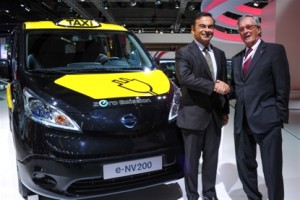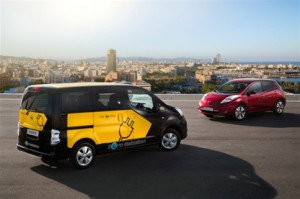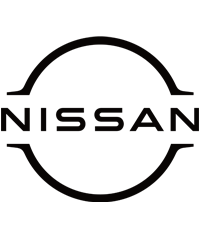 NISSAN President and CEO Carlos Ghosn has officially presented a Nissan e-NV200 electric taxi to the Mayor of Barcelona, Xavier Trias.
NISSAN President and CEO Carlos Ghosn has officially presented a Nissan e-NV200 electric taxi to the Mayor of Barcelona, Xavier Trias.
Barcelona is the first city in the world to commit to the implementation of the zero-emission vehicle as public transport.
The city of Barcelona will lead the global rollout of the vehicle. The clean, green cab will also be introduced in other big cities around the world and will from next year will be produced in Barcelona.
Nissan and Barcelona City signed a memorandum of understanding to promote the use of electric vehicles as taxis and as delivery vehicles by improving the quick-charging network and looking at a range of privileges for zero-emission operators.
The Nissan e-NV200 will be manufactured at the factory located in the Zona Franca in Barcelona from mid-2014 with an investment of 100 million euros and will create more than 700 new jobs.
The e-NV200 is the second vehicle to be introduced to Nissan’s line-up of zero-emission vehicles. The new electric light commercial vehicle is based on the award-winning NV200 van, which is also built in Barcelona.
The new zero-emission model combines the architecture of the NV200 with the electric drivetrain from the world’s best-selling  electric vehicle, the Nissan LEAF. The resulting vehicle has been engineered to have its own unique character and appearance, while retaining the class-leading load space of the combustion engined van.
electric vehicle, the Nissan LEAF. The resulting vehicle has been engineered to have its own unique character and appearance, while retaining the class-leading load space of the combustion engined van.
Ghosn said: ‘We applaud Barcelona city for making this clear commitment to integrating the revolutionary Nissan e-NV200 electric vehicle into the city’s taxi fleet. We are delighted that the city where we will build this new vehicle is leading the way in promoting clean transportation for the benefit for all its citizens and visitors.’
The Mayor of Barcelona and Andy Palmer, Executive Vice President of Nissan, have released details of the agreement signed by both parties and which aims to promote measures and incentives for the proper introduction and implementation of the e-NV200 as a taxi and goods delivery vehicle in the Barcelona metropolitan area.
Nissan and the City of Barcelona are also aiming to encourage electric vehicle use in goods delivery. As part of the agreement, the city council is committed to provide specific places for loading and unloading goods and to enable electric vehicle charging points, as well as promoting a specific identification for electric vehicles.
They will also consider the creation of goods delivering zones and schedules exclusively for zero-emission vehicles and to introduce tax cuts such as reducing business taxes to companies with fleets of electric vehicles.
The incentives to encourage the use of electric delivery vehicles is something that is expected to be replicated in many cities, with several also considering restricting access to central locations to only zero-emission vehicles.



